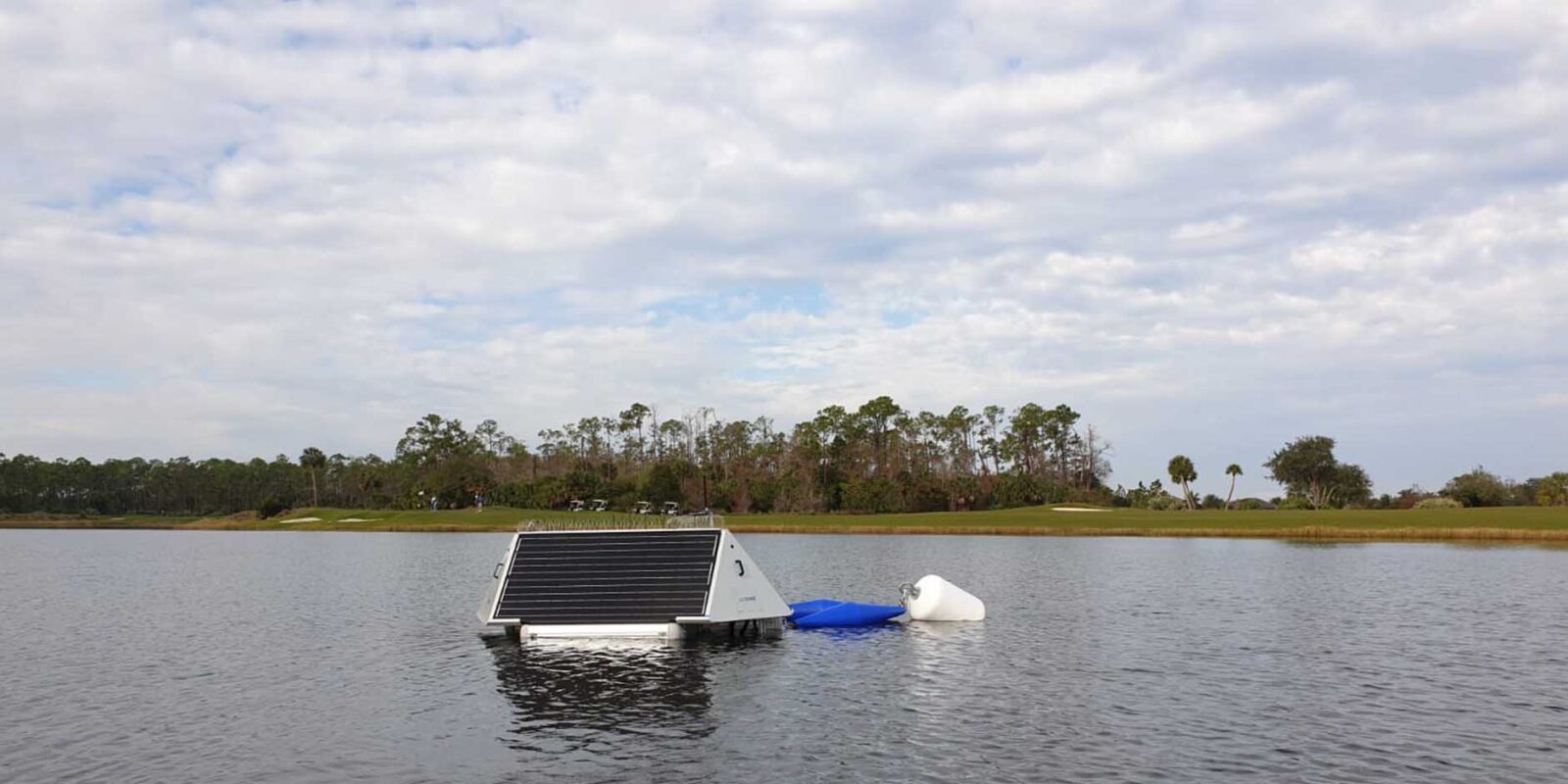In short
- Algae blooms are a growing environmental concern;
- FGCU starts pilot project with the MPC-Buoy technology;
- The project has been successfully implemented in January 2020.
With rising temperatures and extreme summer weather, toxic algal blooms are a pressing threat to the water quality of lakes and drinking water reservoirs.
Growing challenge of toxic blooms
Algae blooms have become a global problem for the water industry at large. Excessive algae growth prevents light from penetrating the water, reduces oxygen levels and releases toxins. This leads to a significant decrease in water quality and an unbalanced ecosystem, including the death of fish and plants.
The Florida Department of Environmental Protection awarded Florida Gulf Coast University (FGCU) the grant to run a pilot project for its Everglades Wetland Research Park in Naples to control this pressing challenge. The project has been successfully implemented in January 2020, and it features the ultrasonic algae control technology MPC-Buoy manufactured by LG Sonic.
An interactive ultrasound solution
LG Sonic’s buoy is solar-powered, chemical-free, and it can adapt to each type of water body. The technology offers real-time data on water quality characteristics, the type of algae and their stage of growth. Based on this data, the device sends out a specific ultrasonic frequency to manage and further prevent algal growth.
MPC-Buoy creates a sound barrier in the upper layer of the water, which stops algae from absorbing sunlight and nutrients. As a result, the algae don’t perform photosynthesis. Instead, they sink and decompose without releasing toxins.
The devices are proven to reduce up to 90% of algae while not affecting fish, plants or any other aquatic life.
“So there are no chemicals involved in this, this is a non-chemical way of sort of disrupting blue-green algae,” Mitsch said. “The company we’re working with has also figured out a way to program the sonic signals for specific algae. They’re really getting sophisticated with this kind of stuff”.
Algae management expertise
To date, LG Sonic implemented its cutting-edge technology in 55 countries worldwide. With a track record of 87% of algae reduction in a 1700 acres hydroelectric dam, the company recovers water bodies of top-level water utilities, power plants, recreational lakes, among others.
“Looking forward to working with the FGCU team to help Florida in its fight against algal blooms. Our systems have accumulated 20+ million water quality and algae related data sets, based on which our algorithm is able to select frequencies to optimise treatment to the specific algae that is present. We are confident our system will help solve Florida’s algae problems,” said Greg Eiffert, Director LG Sonic US.
This technology has also helped American Water to successfully control algal blooms and eliminate chemical usage for their drinking water reservoir in New Jersey.
